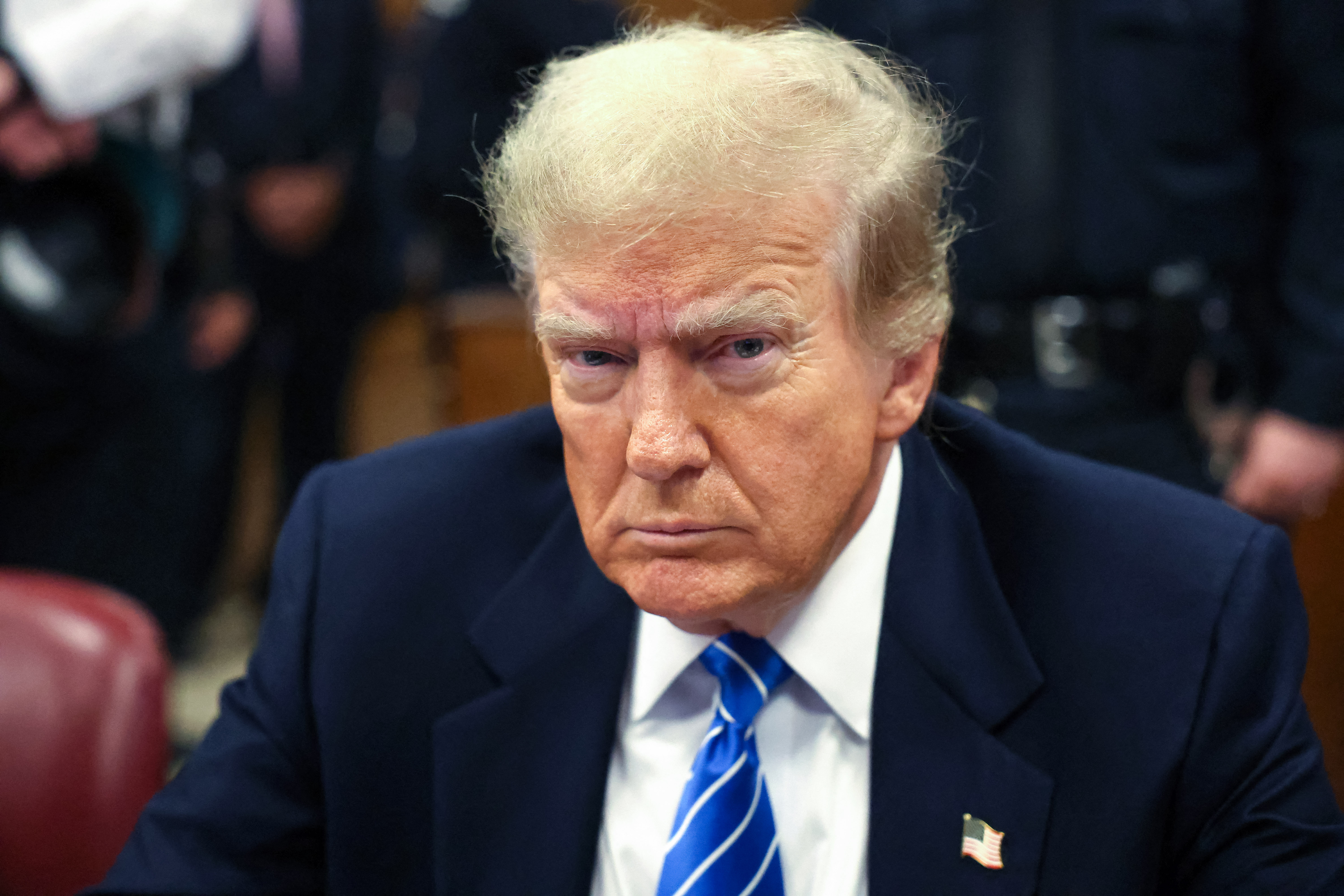Updated
Trump Says Case Is ‘Threat to Democracy’ After Cohen Testimony
Save

Former President Donald Trump at his criminal trial for allegedly covering up hush money payments at Manhattan Criminal Court, in New York City, on May 13, 2024. SPENCER PLATT/POOL/AFP via Getty Images
Here is the latest
•
What Happened Today
•
Trump: Case Is 'Threat to Democracy
•
Cohen: Weisselberg Told Trump Cohen Payments Were for Legal Services
•
Cohen Says Weisselberg Asked for Bank Statement
•
Cohen Angry About 2016 Bonus